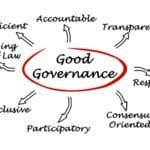Work with Me, Walk with Me
This week’s blog inspiration comes from a training program I attended. Noting it in my “future blog ideas” file, I then let it simmer. It’s ready now, so let’s dig in.
We’re in Ottawa, autumn 2016, at the Canadian Institute for Conflict Resolution, on the first day of “TPN-4”, the final installment of their Third Party Neutral program.
We go around and do intros, wrapping up with our observer, a former student, now volunteering as a teaching assistant.
She details her experience in the field, including some with First Nations communities, during which she “walked with the ‘XYZ’ tribe for four years”.
“Sorry”, I interject, “did you say ‘worked with’, or ‘walked with’?”
“Walked with”, she replied.
“OK, thanks, that’s what I thought I heard”, I nodded.
Similar, but different
There isn’t a huge difference between the two words, given the context.
Or is there? Of course she worked with them, and that is the way most people would have phrased it. But she chose her words carefully, and I for one noticed.
The biggest thing I appreciated about her word choice is that she was actually describing more than a simple working relationship, it was one where she did much more than regular “brain” or “muscle” work.
But then again, the heart is a muscle too.
Journey = Process
To walk with someone suggests some important differences, firstly that the process of helping the client is actually a journey.
Also, when people walk together, there usually is no hierarchy of “you work for me” or vice versa.
I’ve worked with lots of people with whom I never “walked”, and I’ve “walked with” others I never worked with.
Walking with someone suggests that you begin at a certain place and try to go somewhere else, together, hopefully a better place.
You could even leave somewhere and then return, in which case you’re most likely emphasizing something you are doing along the way.
“Accompagnement”
Even if you overlook the nuances of “worked” versus “walked”, you still have that other key word, “with”.
In the area of coaching, which continues to make great strides in becoming a mainstream profession, there is a French translation that I love, which also fits this subject.
Some people use the term “Le coaching” in a way similar to “Le marketing”, and others where a French word has never become generally accepted.
I’ve often heard people call it “service d’accompagnement”, that is, “accompaniment”.
That really resonates with me.
I recall one of my coaching leaders at CTI saying that 80% of coaching boils down to two simple (but not necessarily easy) things:
- Listening without judgement, and
- Being “with” someone
“Being with”, is very much “accompaniment”.
“Walking with” is accompaniment on a journey.
How about a “Guide”?
Of course when you hire someone to work with you or walk with you, it is rarely just for companionship. Ideally the person can offer you some sort of help, thanks to their experience or expertise.
But there are different kinds of helpers, and it is often tempting to look for “the expert” who can give you the best advice, and then “just tell me what to do”.
In some cases, that’s the ideal way to go. In many others, such as figuring our how to transition your family’s wealth from one generation to the next, just getting experts to tell you “what to do” often leads to sub-optimal results.
Guidance helps you get what YOU want
An analogy I like for this kind of work is that of a “guide”. Names like “consultant”, “advisor”, and “coach” each have connotations that bring along some negative baggage and associations to some ears.
I’ve always liked the idea of giving “guidance”, but somehow calling myself a “guide” doesn’t seem to “fit” either.
A good guide “walks with”, helps point out interesting things you may have missed, and keeps you out of places you shouldn’t venture into.
If they’re really good, they don’t even look like they’re working when they are!
They just look like someone who came along for the walk. But how would the journey have been without them?
Who is guiding your transition?




